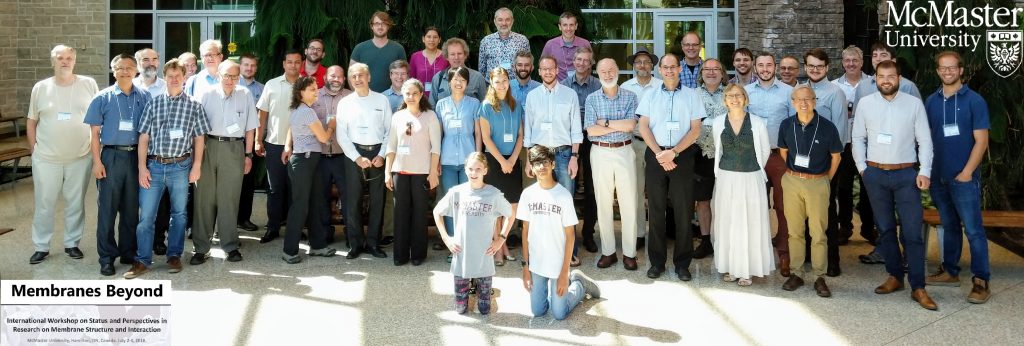Workshops explore latest findings, techniques in membrane research

Could the key to understanding and treating Alzheimer’s or Parkinson’s Disease be found at the molecular level? How can looking at the interaction of drugs with cell membranes help shed light on why antibiotics work in some people and not in others?
Leading biophysicists from around the world are meeting this week at McMaster to discuss these and other questions related to membrane research – from its potential to transform our understanding of disease, to its role in the development of new and innovative medical treatments.
“Essentially what we’re taking about is molecular medicine,” says Maikel Rheinstadter, a professor in McMaster’s Department of Physics and Astronomy, who co-organized the workshops along with Thomas Gutberlet of Germany’s Jülich Centre for Neutron Science.
“Most of these researchers are working toward similar biomedical applications,” he continues, adding that there are only a select number of researchers in the world working in this area. “We wanted to bring them together to share new findings, techniques and approaches so they can use this knowledge immediately for their own research.”
Researchers from the United States, the United Kingdom, France, Sweden, Germany, Austria, Russia and Canada are taking part in 40 different talks that explore a range of topics including the latest research on the role that membranes – the protective layer that regulates the movement of substances in and out of a cell – play in a number of diseases, as well as how they interact with drugs, like antibiotics, on the molecular level.
As well, they will be discussing new developments in biotechnologies, such as nanosensors, which could be used to sense and detect disease.
“In medicine, you typically do large studies and if there’s a new drug for instance, it’s tested on thousands of patients – it will work for some and it won’t work for others, but often from these studies we don’t get an understanding of why,” says Rheinstadter. “By looking at these things on a molecular level, we can start to answer the question of why and that’s what our community is doing.”
Learn more: Groundbreaking technique helping to pave the way for advances in personalized medicine
McMaster has a long-standing history of research in membrane biophysics, and is considered an international leader with several groups on campus working in this area.
Can Indian food help fight Alzheimer's? McMaster scientists are using sci-fi-like techniques to find out: http://bit.ly/2fI1Dy5
Posted by McMaster University on Tuesday, November 29, 2016


